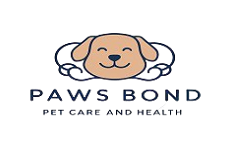Yes, when added to a dog’s diet in moderation, olive oil can provide a number of health advantages. Monounsaturated fats, which are abundant in olive oil, can help strengthen a dog’s skin and coat by lowering dryness and irritation. Furthermore, dogs’ symptoms of allergies and illnesses like arthritis may be lessened by the anti-inflammatory qualities of olive oil. Additionally, antioxidants like vitamin E found in olive oil might boost immunity and general wellbeing. It’s crucial to use olive oil sparingly when feeding your dog because it’s high in calories and overindulgence might result in weight gain. To get the benefits, adding a spoonful of olive oil to your dog’s diet a few times a week is usually enough.
Is Olive Oil Safe for Dogs?
Yes, when given in moderation, olive oil is typically regarded as safe for dogs. It has antioxidants and good fats that can help a dog’s immune system, enhance joint function, and improve the health of their skin and coat. On the other hand, consuming too much olive oil might cause stomach problems and weight gain. Before adding olive oil to your dog’s diet, make sure it’s appropriate for their specific health needs and dietary requirements by speaking with a veterinarian.
Advantages of Adding Olive Oil to Your Dog’s Diet
Including olive oil in your dog’s diet can improve their general health and wellbeing in a number of ways. Monounsaturated fats, which are abundant in olive oil, can aid your dog’s skin and coat by lowering irritation and dryness. Furthermore, olive oil’s anti-inflammatory qualities may help dogs with their allergies and arthritis by reducing their symptoms. Additionally, olive oil has antioxidants like vitamin E that help strengthen your pet’s immune system and increase their general vitality.
Improves Your Dog’s Skin and Coat Health
For your dog’s general health, it’s important to improve the health of their skin and coat, and adding olive oil to their food can assist. Omega-3 and omega-6 fatty acids, which are abundant in olive oil, enhance skin suppleness and help retain moisture, giving hair a healthier, glossier sheen. Furthermore, olive oil’s anti-inflammatory qualities may help soothe skin irritations and lessen itching, making your dog friend more at ease and happy.
Improves the Flavor and Texture of Your Dog’s Food
Improving the taste and consistency of your dog’s food is crucial to making sure they eat with pleasure and contentment. This can be accomplished by adding olive oil to your dog’s diet, as it gives their food a smooth consistency and a rich, savory flavor. The use of olive oil may encourage finicky eaters or dogs with decreased appetites to eat their food more enthusiastically and enhance the overall mealtime experience, which can be especially helpful for them.
Enhances the Flavor and Texture of Your Dog’s Food
You can enhance the flavor and texture of your dog’s food by adding olive oil to their meals. Their food is more palatable and has a delightful richness from the olive oil, which appeals to even the pickiest diners. Furthermore, the silky feel of olive oil can help make cooked meals softer or dry kibble softer, making mealtimes with your dog more pleasurable. This easy addition will guarantee that your dog gets the nourishment he needs and promote healthier eating habits.
Boosts Your Dog’s Immune System and Promotes Cognitive Health
For your dog to be healthy overall, its immune system and cognitive function need to be strengthened. Adding olive oil to their diet can help them reach these objectives. Antioxidants included in olive oil, such vitamin E and polyphenols, can fortify the immune system and guard against cellular damage brought on by free radicals. Furthermore, the good fats in olive oil promote cognitive health and brain function, which may lower your dog’s chance of cognitive decline as they age.
Recommended Serving Size
The recommended serving size of olive oil for dogs typically ranges from 1/4 teaspoon to 1 teaspoon per 10 pounds of body weight per day. It’s essential to start with a smaller amount and gradually increase it while monitoring your dog’s response and overall health. Always consult with your veterinarian before making significant dietary changes.
Methods for Incorporating Olive Oil into a Dog’s Diet
Dogs can safely consume olive oil in moderation, and it can offer various health benefits when included in their diet.
Mixing with Food: To improve the flavor and texture of your dog’s food, drizzle it with olive oil.
As a Supplement: Give your dog extra virgin olive oil or include it into treats.
Is Olive Oil Beneficial for Dogs?
Indeed, when added to a dog’s diet in moderation, olive oil can be healthy. Rich in good fats, antioxidants, and anti-inflammatory qualities, olive oil can benefit a dog’s health in a number of ways. It helps with digestion, improves the health of the skin and coat, and may even strengthen the immune system. To make sure it’s appropriate for your dog’s specific health needs, you must speak with a veterinarian before introducing olive oil to their diet.
Potential Risks to Consider
Dogs can benefit from the health benefits of olive oil, but there are some possible hazards to take into account. Because olive oil contains a lot of fat and calories, consuming it in excess might result in weight gain and obesity. Additionally, if a dog has a sensitivity to fats or consumes too much olive oil, they may develop digestive distress, including vomiting or diarrhea. To avoid any negative effects, it’s important to gradually add olive oil to your dog’s food and pay close attention to how they react.
While olive oil can offer health benefits
Dogs can benefit from the health benefits of olive oil, but there are a few things to keep in mind
Caloric Content:
Since olive oil is high in calories, dogs who consume it in excess may become overweight or obese.
Digestive Upset:
If a dog is sensitive to fats or eats too much olive oil, they may suffer digestive problems such as vomiting or diarrhea.
Moderation is Key:
To avoid any negative effects, gradually add olive oil to your dog’s diet and pay close attention to how they react.
Consultation: To make sure the new food is suitable and safe for your dog, always check with your veterinarian before adding olive oil or any other new ingredient to their diet.
7 Benefits of Adding Extra Virgin Olive Oil to Your Dog’s Diet
Improved Skin and Coat Health
Olive oil’s beneficial lipids help nourish your dog’s skin and encourage a glossy coat.
Joint Support
Because olive oil has anti-inflammatory qualities, it may help reduce arthritis symptoms and improve joint health.
Digestive Aid
Dog constipation can be relieved and digestion improved with the use of olive oil.
Weight Management
In dogs, moderation can assist maintain a healthy weight by giving them the necessary nutrients without adding extra calories.
Immune Boost
Olive oil’s antioxidants boost immunological function, maintaining your dog’s health and fortitude.
Heart Health
Dogs’ cardiovascular health can be supported by the heart-healthy fats in olive oil.
Brain Function
In dogs, the omega-3 fatty acids in olive oil may promote healthy brain development and cognitive performance.
Frequently Asked Questions
Is it safe to give olive oil to my dog?
In moderation, olive oil is safe for dogs overall. When taken appropriately, it can offer a number of health advantages.
What are the benefits of giving olive oil to my dog?
Because olive oil contains omega-3 fatty acids, it can help maintain healthy skin and coats. Additionally, it might facilitate digestion and lessen allergy or dry skin problems.
How much olive oil should I give to my dog?
Depending on the size and weight of the dog, the recommended daily intake of olive oil usually varies from 1/4 teaspoon to 1 tablespoon. It’s advisable to start modest and grow gradually as needed.
Can olive oil help with my dog’s constipation?
It’s possible that olive oil works as a natural laxative to ease canine constipation. Before applying it as a treatment, you must speak with your veterinarian.
Is there a specific type of olive oil I should use for my dog?
Extra virgin olive oil (EVOO) is the greatest option because it is the least processed and has the most nutrients. Use of infused or flavored olive oils is discouraged since they might include ingredients that are dangerous for dogs.
Are there any risks or side effects associated with giving olive oil to dogs?
Although giving too much olive oil is generally safe, it can cause weight gain or digestive problems like diarrhea. It’s crucial to keep an eye on your dog’s reaction and speak with your veterinarian if you see any negative affects.
Can I cook my dog’s food with olive oil?
Sure, you can add some health benefits to your dog’s homemade food by using olive oil. It is advisable to use it sparingly and to avoid adding too much oil, since this may cause an imbalance in your dog’s diet.
Can olive oil be used topically on my dog’s skin?
It is possible to apply olive oil topically to dogs’ dry or inflamed skin. But it’s important to use it cautiously, and never apply it directly to open wounds without first talking to your veterinarian.
Should I consult my vet before giving olive oil to my dog?
Absolutely, it’s a good idea to speak with your veterinarian before adding olive oil or any other new supplement to your dog’s diet.
How should I store olive oil for my dog?
To keep olive oil from going rancid, keep it somewhere cold and dark, away from heat sources and direct sunlight. To preserve freshness, also make sure the container is properly sealed.
Conclusion
If added to your dog’s food sparingly, olive oil can be a healthy addition. Improved skin and coat health, joint support, digestive aid, and immune system boosting qualities are just a few of the health benefits it provides. But it’s important to be aware of any side effects, such weight gain and upset stomach, and to add olive oil gradually while keeping an eye on your dog’s reaction. It is always advisable to speak with your veterinarian before introducing olive oil into your dog’s food to make sure it is appropriate for your dog’s specific medical requirements. Olive oil can improve the general health and wellbeing of your dog when used properly and in moderation.










